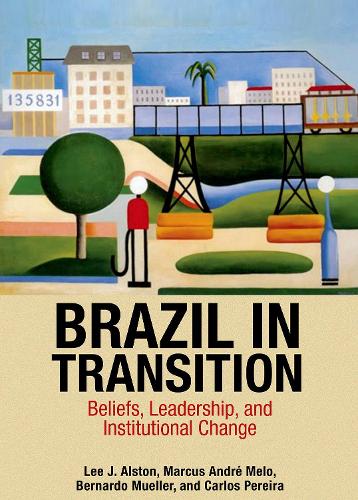
Brazil in Transition: Beliefs, Leadership, and Institutional Change
(Hardback)
Publishing Details
Brazil in Transition: Beliefs, Leadership, and Institutional Change
By (Author) Lee J. Alston
By (author) Marcus Andr Melo
By (author) Bernardo Mueller
By (author) Carlos Pereira
Princeton University Press
Princeton University Press
2nd August 2016
United States
Classifications
Tertiary Education
Non Fiction
338.981
Physical Properties
Hardback
280
Width 152mm, Height 235mm
539g
Description
Brazil is the world's sixth-largest economy, and for the first three-quarters of the twentieth century was one of the fastest-growing countries in the world. While the country underwent two decades of unrelenting decline from 1975 to 1994, the economy has rebounded dramatically. How did this nation become an emerging power Brazil in Transition loo
Reviews
"Brazil is the world's sixth-largest economy and fifth-largest nation, and its transformation has long piqued the interest of scholars and observers. In this engaging book, Alston and his Brazilian colleagues Melo, Mueller, and Pereira examine this transformation by asking how Brazil became an emerging power during the 20th century... Brazil in Transition is a valuable contribution to the understanding of why nations develop and the struggles they face in the process."--Choice "Brazil in Transition is an intriguing book that holds the reader's attention throughout."--Leonardo Weller, EH.net
Author Bio
Lee J. Alston is the Ostrom Chair, professor of economics and law, and director of the Ostrom Workshop at Indiana University, as well as research associate at the NBER. Marcus Andre Melo is professor of political science at the Federal University of Pernambuco, Brazil. Bernardo Mueller is professor of economics at the University of Brasilia. Carlos Pereira is professor of political science at the Brazilian School of Administration at the Getulio Vargas Foundation, Rio de Janeiro.
